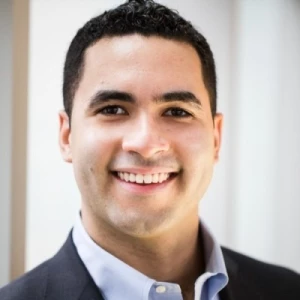Hey everybody
Any tips for preparing for case interviews by myself (without a coach)?
Thanks!

Hey everybody
Any tips for preparing for case interviews by myself (without a coach)?
Thanks!


Hi there,
Great question! While I strongly recommend working with a coach--not that I'm biased... ;), preparing on your own is absolutely doable with the right structure and resources. Here are some practical tips to help you prepare effectively:
Stay consistent and proactive. Self-preparation requires discipline, but every case you solve will build your confidence and sharpen your skills.
If you feel stuck or want to refine specific areas, consider investing in 1–2 mock sessions with a coach. Here to help if needed!
Best of luck with your preparation!
Cheers,
Vini

Hi,
Thanks for reaching out.
There are many resources to prep without a coach.
Step 1:
Start with the foundations with Victor Cheng's case interview Secrets. It will give you a good introduction to case interviews as well as foundational structures.
Step 2:
Get hold of case books published by B schools to go through the cases and solutions. Also practice cases on prep lounge.
Step 3:
In parallel, practice with peers on prep lounge - increase the experience level of peers you are practicing with starting from low to high. The more cases you practice the better you will get if you address the feedback at the end of the case. It is like training your brain to get used to a process and problem solving at a higher level just like training your muscles in a gym - as you train more your current level becomes easy and you move to the next level.
Step 4:
In parallel, read primers and articles on different industries to understand the problems facing different industries. This can be very time consuming - so maybe allocate 30 - 45 mins of your day to this and be careful to not over-read.
Step 5:
If you have an interview with a firm, or targeting specific firms, reach out to alum from those companies if you know them to request if they will give you a practice case. Work on their feedback - those are very valuable.
When you feel good about the practice or if you have reached a plateau or need help with a specific type of case, work with a coach to improve or address the gaps.
In order to succeed:
As you progress in your journey, don't lose sight of the end goal and tailor your plan to meet that. Create a time table to plan and track your progress at the very beginning of this plan.
Optional:
Go over advanced materials like Case in Point or "Look over my shoulder" by Victor Cheng for more involved case solving. Only if you have extra time.
Hope this helps. Feel free to reach out if you need more help.
Thanks,
Soh

Hi!
Preparing for case interviews solo can be very effective with the right approach! Start with resources like Consulting Clubs' Case Books to understand frameworks and expectations. Then, practice cases regularly—use PrepLounge or sample cases from consulting firms' websites. Focus on structuring problems, communicating clearly, and mastering mental math. Record yourself solving cases to spot improvement areas. Since I’ve done internships at McKinsey, BCG, and Roland Berger, and interviewed candidates at McKinsey, I’d also stress practicing mock cases with friends or joining online case groups to simulate real interviews. Consistency and feedback are key—good luck!
Alessa :)

One question for you to reflect on:
What is your strategy to stand out among other applicants who are using the same resources as you to prepare their casing skills?
Best,
Alberto
—
Explore my latest case inspired by a real MBB interview: StayPro - Consumer Growth Strategy

Hey there:
I find that case interview preparation is like learning a new language in that you should:
These are the hallmarks of how you'd prepare. But the real secret sauce is in the details of how you do it. So some things to focus on further:
All the best!

Hey there,
Focus on learning how to case.
The key reason why candidates fail their case interviews and don't improve with practice is because they never learn the right approach and techniques to begin with. They might go through 30-40 cases, just repeating the same mistakes over and over again. There is often no strong baseline.
Make sure you understand and learn the basics for each part of the case (structuring, charts, math), which is
A replicable step-by-step for each part of the case interview
The right thinking techniques around the individual parts (e.g., what's a framework, what is evaluated, how can I ensure I think about it the correct way, what are some shortcuts to get to the answer quickly, etc.)
Simple communication templates to help you communicate your insights as well as ask for data in the right way to drive the case forward
Avoid generic advice and framework memorization approaches. This will only hurt your performance and waste a ton of time (why -> check out the first post here: https://www.preplounge.com/en/consulting-forum/how-goodrelevant-is-the-case-in-point-book-for-case-prep-1984)
Once you have that baseline it's time to practice and internalize the skills to create the right profile, polishing your strengths and lifting your weaknesses to a robust-enough level
Focus on quality over quantity. Doing 50+ cases does not mean much if you are not applying the right habits to score high and do a detailed debrief after every case to improve. You want to move from bad to good for your weaknesses and good to great for your strengths --> use the feedback from your previous experience and tailor your prep accordingly
Consider booking at least an initial coaching session to get a detailed and objective evaluation of your performance + learn the right habits for every case regardless of context and framework + get a tailored preparation plan out of the session that will set you up for an effective and efficient prep.
All the best,
Florian

Hi there,
I would be happy to share my thoughts on your question:
You can find more on this topic here: How to succeed in the final interview round.
If you would like a more detailed discussion on how to best prepare for your upcoming interviews, please don't hesitate to contact me directly.
Best,
Hagen











